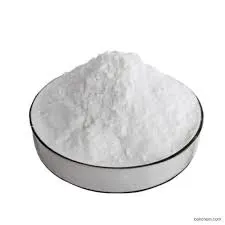- Afrikaans
- Albanian
- Amharic
- Arabic
- Armenian
- Azerbaijani
- Basque
- Belarusian
- Bengali
- Bosnian
- Bulgarian
- Catalan
- Cebuano
- Corsican
- Croatian
- Czech
- Danish
- Dutch
- English
- Esperanto
- Estonian
- Finnish
- French
- Frisian
- Galician
- Georgian
- German
- Greek
- Gujarati
- Haitian Creole
- hausa
- hawaiian
- Hebrew
- Hindi
- Miao
- Hungarian
- Icelandic
- igbo
- Indonesian
- irish
- Italian
- Japanese
- Javanese
- Kannada
- kazakh
- Khmer
- Rwandese
- Korean
- Kurdish
- Kyrgyz
- Lao
- Latin
- Latvian
- Lithuanian
- Luxembourgish
- Macedonian
- Malgashi
- Malay
- Malayalam
- Maltese
- Maori
- Marathi
- Mongolian
- Myanmar
- Nepali
- Norwegian
- Norwegian
- Occitan
- Pashto
- Persian
- Polish
- Portuguese
- Punjabi
- Romanian
- Russian
- Samoan
- Scottish Gaelic
- Serbian
- Sesotho
- Shona
- Sindhi
- Sinhala
- Slovak
- Slovenian
- Somali
- Spanish
- Sundanese
- Swahili
- Swedish
- Tagalog
- Tajik
- Tamil
- Tatar
- Telugu
- Thai
- Turkish
- Turkmen
- Ukrainian
- Urdu
- Uighur
- Uzbek
- Vietnamese
- Welsh
- Bantu
- Yiddish
- Yoruba
- Zulu
Nov . 23, 2024 08:30 Back to list
2 glutaraldehyde solution preparation
Preparation of a 2% Glutaraldehyde Solution
Glutaraldehyde is a potent cross-linking agent widely used in biological and chemical laboratories. Its applications span across fixation of biological tissues, sterilization of medical instruments, and as a reagent in various chemical syntheses. Among its various concentrations, a 2% glutaraldehyde solution is particularly favored for its balance between efficacy and safety, especially in biological applications. This article will guide you through the process of preparing a 2% glutaraldehyde solution and highlight important considerations to ensure safety and effectiveness.
Materials Required
To prepare a 2% glutaraldehyde solution, the following materials are needed
- Glutaraldehyde (usually sold in a concentrated form, often 25% solution) - Distilled water - Weighing balance - Graduated cylinder or pipette - Clean glass bottle or container for storage - Personal protective equipment (PPE) such as gloves, goggles, and lab coat - Fume hood or well-ventilated area for safety
Calculation of the Required Amount
To prepare a 2% glutaraldehyde solution, it is essential to understand that a 2% solution means there are 2 grams of glutaraldehyde in every 100 milliliters of solution. Since glutaraldehyde is typically supplied in a 25% concentration, the first step is to determine the volume of the concentrated solution needed for the preparation.
Using the dilution equation
\[ C_1 \times V_1 = C_2 \times V_2 \]
Where - \(C_1\) = concentration of the stock solution (25%) - \(V_1\) = volume of the stock solution needed - \(C_2\) = desired concentration (2%) - \(V_2\) = final volume of the desired solution (100 mL)
Rearranging to find \(V_1\)
2 glutaraldehyde solution preparation

\[ V_1 = \frac{C_2 \times V_2}{C_1} = \frac{2\% \times 100 \, \text{mL}}{25\%} = 8 \, \text{mL} \]
Thus, you will need 8 mL of the 25% glutaraldehyde solution. The remaining volume will be distilled water.
Preparation Steps
1. Put on Personal Protective Equipment (PPE) Glutaraldehyde is a toxic substance and can cause irritation to skin, eyes, and respiratory system. Always wear gloves, goggles, and lab coats to minimize exposure.
2. Measure the Glutaraldehyde Using a graduated cylinder or pipette, measure out 8 mL of the 25% glutaraldehyde solution. It is advisable to perform this step in a fume hood or a well-ventilated area to avoid inhaling fumes.
3. Add Distilled Water Measure out 92 mL of distilled water. Combine the 8 mL of glutaraldehyde with the 92 mL of distilled water in a clean glass bottle. It’s important to add glutaraldehyde to water, rather than the reverse, to ensure safe mixing and avoid heat generation.
4. Mix Thoroughly Gently swirl or invert the container to mix the solution thoroughly. Ensure a uniform solution is achieved.
5. Label and Store Proper labeling is crucial. Clearly mark the container with the concentration (2% glutaraldehyde solution), the date of preparation, and any relevant safety warnings. Store the solution in a cool, dark place away from direct sunlight, as light can degrade the glutaraldehyde.
Conclusion
The preparation of a 2% glutaraldehyde solution is a straightforward process with vital considerations for safety and proper handling. By following the steps outlined above and taking necessary precautions, you can effectively prepare this valuable reagent for various applications in scientific research and clinical settings. Always ensure to consult Material Safety Data Sheets (MSDS) for detailed safety and handling instructions, and adhere to laboratory safety protocols to minimize risks associated with glutaraldehyde usage.
-
Guide to Oxytetracycline Injection
NewsMar.27,2025
-
Guide to Colistin Sulphate
NewsMar.27,2025
-
Gentamicin Sulfate: Uses, Price, And Key Information
NewsMar.27,2025
-
Enrofloxacin Injection: Uses, Price, And Supplier Information
NewsMar.27,2025
-
Dexamethasone Sodium Phosphate Injection: Uses, Price, And Key Information
NewsMar.27,2025
-
Albendazole Tablet: Uses, Dosage, Cost, And Key Information
NewsMar.27,2025













